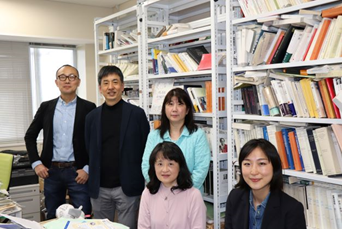Division and Team
Division of Scientific Information and Public Policy
Behavioral Public Policy Team
Applying behavioral science and economics to infectious disease control
Using behavioral economics and causal inference to examine the effectiveness of infectious disease control
Main Research themes
1. An economic study on the protective behavior against novel coronavirus infections
2. A study of the nudge effect on the willingness to pay for vaccines against novel coronavirus infections.
3. Prediction and mitigation of micro and macro impacts of infectious diseases
4. Behavioral economics intervention research on behavioral change of individuals and organizations as countermeasures against infectious diseases
We will focus on Unexpected Health Issues (UHI), which are difficult to predict in advance, and which have the potential to significantly damage physical and mental health. We approach UHI by combining the contrasting perspectives of quantity and quality, whole and individual, in a complementary manner.
Main Research themes
1. Social Sensing in Health Care
2. Ethnography of Health Care
3. Health Care and Communication
4. Health Care and Health Promotion

Information Analysis Team
Analysis and practice based on natural and society aligned sciences !
Mathematical Analysis Unit researches the mathematical representation and modeling of infectious diseases through both microscopic and macroscopic approaches that incorporate the concepts of reduction and emergence in natural science. Analyzing the information based on scientific and mathematical aspects, we aim at integrating natural and social sciences and disseminating an accurate information that will be the evidence of policy making.
Main Research themes
1. Analysis of spread scale of infectious disease using K value
2. Causal modeling of infectious diseases by incorporating intercommunity interactions
3. Machine learning approach on data analysis and prediction for infectious disease
ELSI & Technology Unit will work on social implementation through solution-focused assessment of infection risks at mass gathering events and indirect health risks in pandemics and disasters, as well as theorizing risk communication methods for collaboration with stakeholders. In addition, we will keep an eye on the trends of academic publications and people's recognition and awareness of the research results that form the basis for news and other information. Through these activities, we will develop society-aligned sciences to disseminate the findings.
Main Research themes
1. Infection risk assessment at mass gathering events
2. Multiple risk assessment in disasters and pandemics
3. Analysis of risk communication for stakeholder collaboration
4. Trends and quality of scholarly publishing, including preprints
5. Relationship between information and society, as well as perception and recognition in society
Public Relation Team